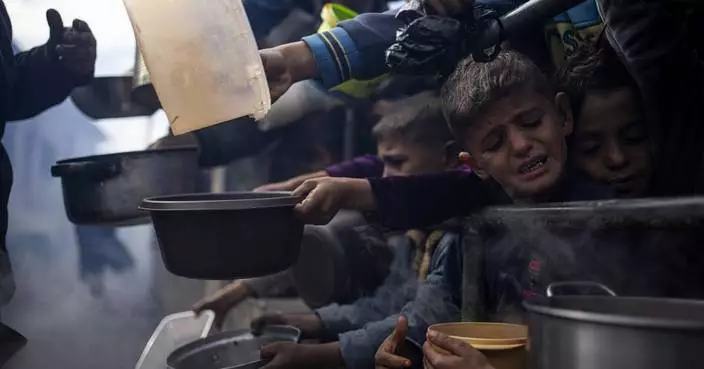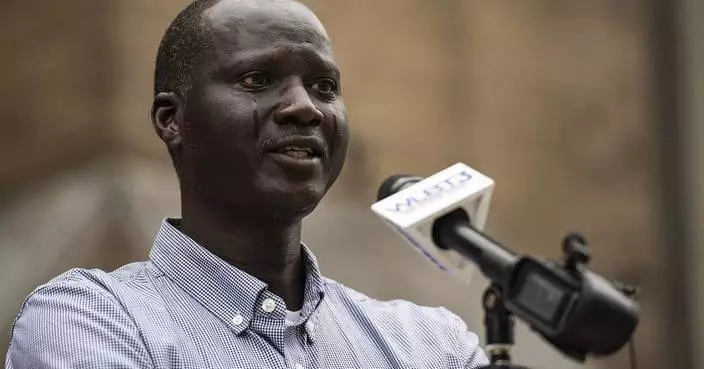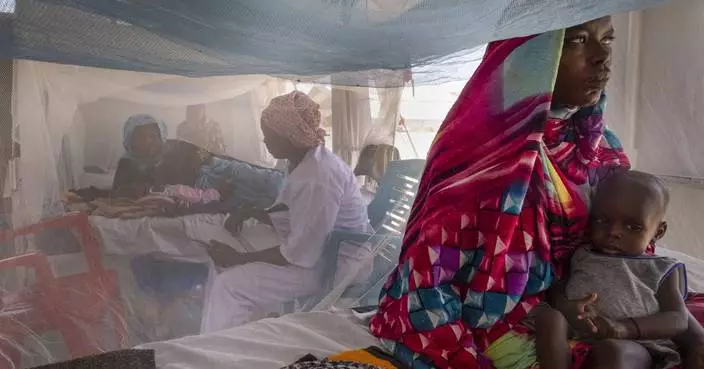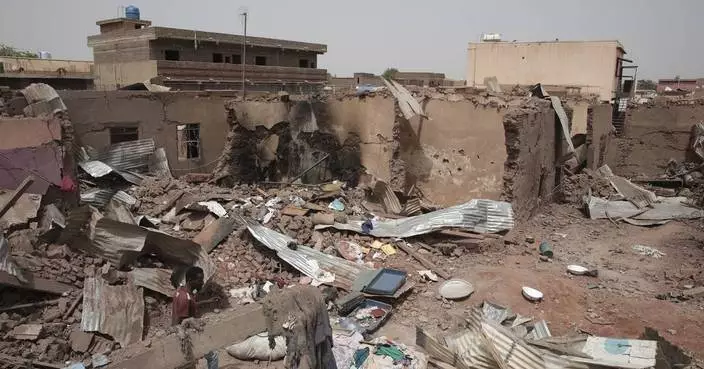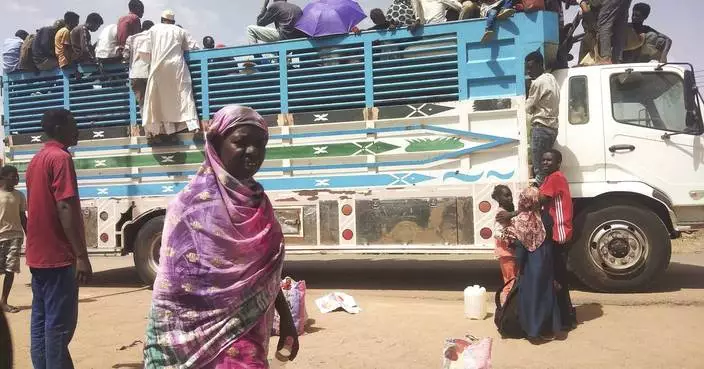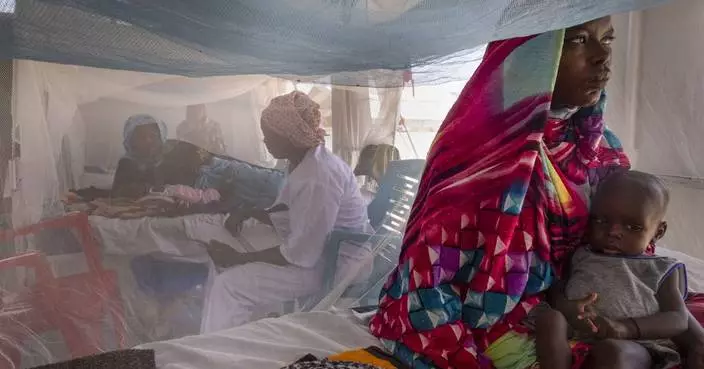Tribal clashes between Arabs and non-Arabs in Sudan’s South Darfur province left at least 30 people dead and a dozen wounded, authorities said Wednesday.
The fighting poses a significant challenge to efforts by Sudan’s transitional government to end decades-long rebellions in some areas of the country, including Darfur. Rebel groups from Darfur and other areas have for months engaged in talks with the transitional authorities to establish peace in Darfur and elsewhere in Sudan.
Adam Regal, a spokesman for a local organization that helps run refugee camps in Darfur, said the violence erupted when a group from the Falata tribe robbed sheepherders from the Arab Rizeigat tribe in the town of Rumali, leading to fierce clashes between the two tribes.
Regal shared graphic footage for dead bodies and wounded with blood-stained clothes.
Sudan is on a fragile path to democracy after a popular uprising led the military to overthrow longtime autocratic President Omar al-Bashir last year. A military-civilian government now rules the country. One if its key priorities has been ending the insurgencies in Sudan’s far-flung provinces in order to slash military spending, which takes up much of the national budget.
Prime Minister Abdalla Hamdok said in a statement that the fighting, which erupted Tuesday and continued Wednesday, has since subsided.
Local authorities have imposed a round-the-clock curfew in the area and deployed more troops to stabilize the situation in the region, said South Darfur’s Gov. Hashim Mahmoud.
Mahmoud said a fact-finding investigation has been formed and would begin its work immediately after security forces control the situation.
Tensions between the Arab and non-Arab tribes date back to the Darfur conflict that began in 2003, when ethnic Africans rebelled, accusing the Arab-dominated Sudanese government of discrimination.
Al-Bashir's government in the capital Khartoum was accused of retaliating by arming local nomadic Arab tribes and organizing them into a militia known as the Janjaweed and unleashing them on civilian populations. The militias became notorious for massacres and rapes.
UNITED NATIONS (AP) — The United Nations food agency warned Sudan’s warring parties Friday that there is a serious risk of widespread starvation and death in Darfur and elsewhere in Sudan if they don’t allow humanitarian aid into the vast western region.
Leni Kinzli, the World Food Program’s regional spokesperson, said at least 1.7 million people in Darfur were experiencing emergency levels of hunger in December, and the number “is expected to be much higher today.”
“Our calls for humanitarian access to conflict hotspots in Sudan have never been more critical,” she told a virtual U.N. press conference from Nairobi.
Sudan plunged into chaos in mid-April 2023, when long-simmering tensions between its military led by Gen. Abdel Fattah Burhan, and the paramilitary Rapid Support Forces commanded by Mohammed Hamdan Dagalo, broke out into street battles in the capital, Khartoum. Fighting has spread to other parts of the country, especially urban areas and the Darfur region.
The paramilitary forces, known as the RSF, have gained control of most of Darfur and are besieging El Fasher, the only capital in Darfur they don’t hold, where some 500,000 civilians had taken refuge.
Kinzli said WFP’s partners on the ground report that the situation in El Fasher is “extremely dire” and it’s difficult for civilians wanting to flee the reported RSF bombings and shelling to leave.
She said the violence in El Fasher and surrounding North Darfur is exacerbating the critical humanitarian needs in the entire Darfur region, where crop production for staple cereals like wheat, sorghum and millet is 78% less than the five-year average.
On top of the impact of escalating violence, Kinzli said, “WFP is concerned that hunger will increase dramatically as the lean season between harvests sets in and people run out of food.” She said a farmer in El Fasher recently told her that her family had already run out of food stocks and is living day-to-day, an indication that the “lean season,” which usually starts in May, started earlier.
Kinzli said she received photos earlier Friday from colleagues on the ground of severely malnourished children in a camp for displaced people in Central Darfur, as well as older people “who have nothing left but skin and bones.”
“Recent reports from our partners indicate that 20 children have died in recent weeks of malnutrition in that IDP camp,” she said.
“People are resorting to consuming grass and peanut shells,” Kinzli said. “And if assistance doesn’t reach them soon, we risk witnessing widespread starvation and death in Darfur and across other conflict-affected areas in Sudan.”
Kinzli called for “a concerted diplomatic effort by the international community to push the warring parties to provide access and safety guarantees” for humanitarian staff and convoys.
“One year of this devastating conflict in Sudan has created an unprecedented hunger catastrophe and threatens to ignite the world's largest hunger crisis,” she warned. “With almost 28 million people facing food insecurity across Sudan, South Sudan and Chad, the conflict is spilling over and exacerbating the challenges that we've already been facing over the last year.”
In March, Sudanese authorities revoked WFP’s permission to deliver aid from neighboring Chad to West Darfur and Central Darfur from the town of Adre, saying that crossing had been used to transfer weapons to the RSF. Kinzli said restrictions from Sudanese authorities in Port Sudan are also preventing WFP from transporting aid via Adre.
Sudanese authorities approved the delivery of aid from the Chadian town of Tina to North Darfur, but Kinzli said WFP can no longer use that route for security reasons because it goes directly into besieged El Fasher.
On Thursday, gunmen in South Darfur killed two drivers for the International Committee of the Red Cross and injured three ICRC staff members. On Friday, U.N. humanitarian chief Martin Griffith called the killing of aid works “unconscionable.”
Kinzli said the fighting “and endless bureaucratic hurdles” have prevented WFP from delivering aid to over 700,000 people in Darfur ahead of the rainy season when many roads become impassable.
“WFP currently has 8,000 tons of food supplies ready to move in Chad, ready to transport, but is unable to do so because of these constraints,” she said.
“WFP urgently requires unrestricted access and security guarantees to deliver assistance,” she said. “And we must be able to use the Adre border crossing, and move assistance across front lines from Port Sudan in the east to Darfur so we can reach people in this desperate region.”

FILE - Sudanese Children suffering from malnutrition are treated at an MSF clinic in Metche Camp, Chad, near the Sudanese border, on April 6, 2024. The United Nations food agency warned Sudan’s warring parties Friday, May 4, that there is a serious risk of widespread starvation and death in Darfur and elsewhere in Sudan if they don’t allow humanitarian aid into the vast western region. (AP Photo/Patricia Simon, File)





